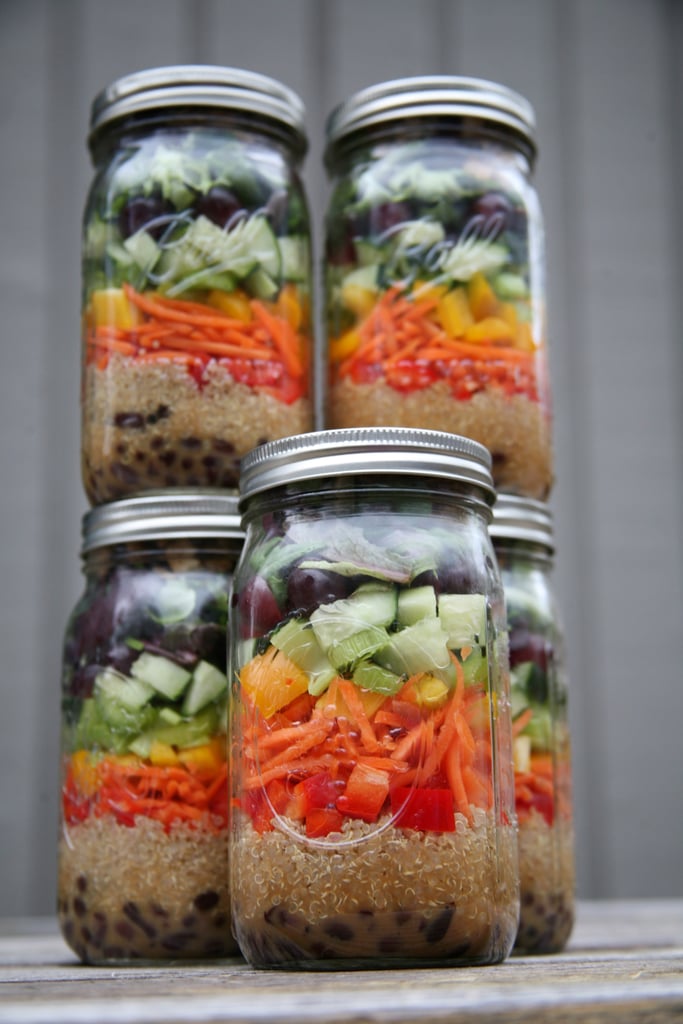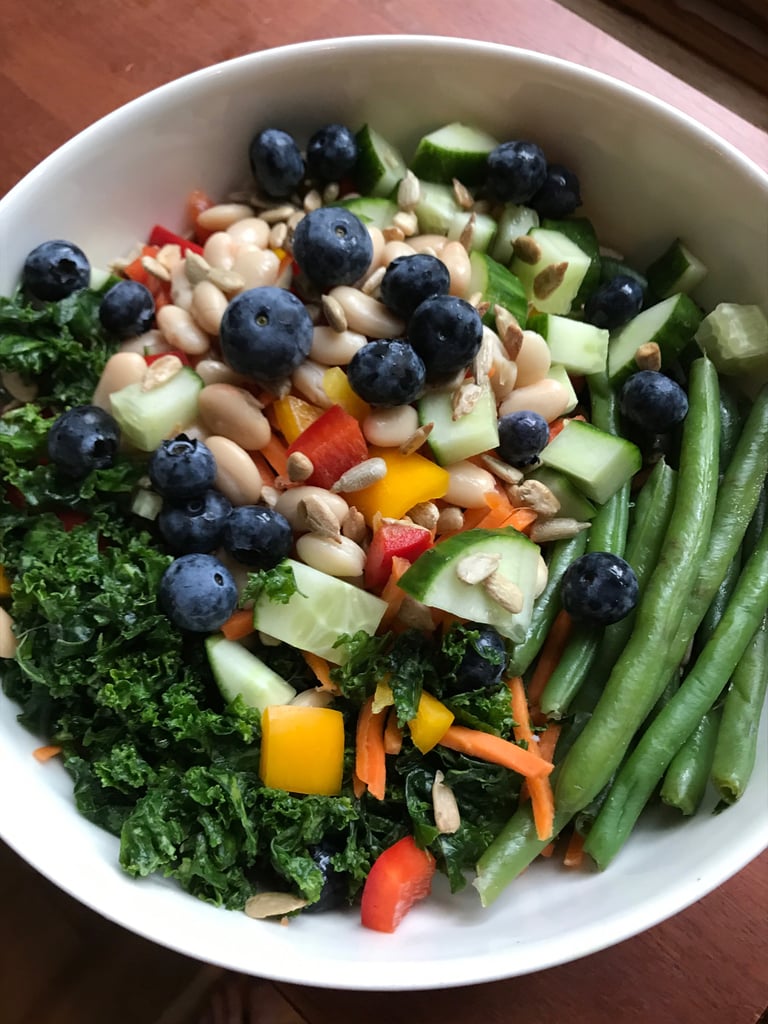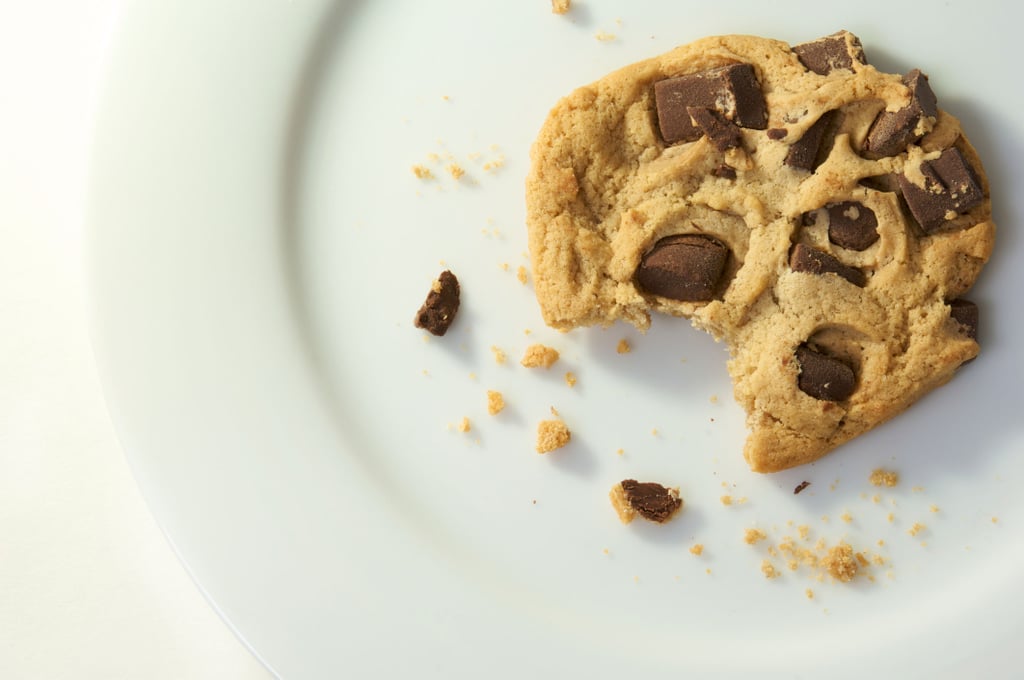Intermittent fasting [1] (IF) isn't a diet. It's a lifestyle that involves eating for a certain period of time (eating window) and then not eating for a certain period of time (fasting window). There are many different ways to intermittent fast [2], and they are purported to offer a slew of health benefits [3], but many people choose to do IF to lose weight [4].
If you're new to intermittent fasting or you choose an advanced fasting protocol [5] that involves long fasting periods, you may find that you tend to overeat during your eating window. This can actually cause digestive issues, affect sleep, and cause weight gain. We asked registered dietitian Leslie Langevin, MS, author of The Anti-Inflammatory Kitchen Cookbook [6] to share her tips on how to prevent overeating when doing intermittent fasting.
Stay Hydrated
Leslie said that it's helpful to have some black coffee or tea and ample water in the morning before your first meal. This not only helps with hydration but also hunger.
Have Your First Meal Prepped
One of the most crucial things you can do to avoid overeating is to have your meal all prepped. Either bring a packed lunch to work or plan out exactly what you're going to cook at home. Since you'll likely be pretty hungry when you're eating window opens, having a plan helps you avoid grabbing the quickest (and maybe not the healthiest) thing you can get your hands on.
Fill Up on Veggies First
Start off your eating window with a large portion of veggies. Fiber will keep you full, so try starting off with a salad for some fullness before moving onto your savory pasta dish, for example.
Eat Slowly
Eat slowly! We tend to want to eat quickly when we're extremely hungry, so make sure to slow down and be mindful. Take 20 minutes to eat and focus on enjoying your bites, the color, flavor, the aroma, and how the food makes you feel. "Before going for seconds, you can watch the clock and make sure it has been about 20 minutes since starting your meal." Leslie said. You might find you're not as hungry when you wait another five or 10 minutes.
Eat Enough
Intermittent fasting defines when to eat, not what or how much. You should still aim to eat your daily calories during your eating window and not have too much of a calorie deficit. If you're not eating enough, or you're cutting certain foods out like carbs, or you're only eating foods you think you're supposed to eat but hate (we're looking at you, celery juice!), then deprivation will drive you to overeat. Leslie said to focus on healthy, filling foods, and remember that it's OK to indulge and have fun foods, too!
Make Your Last Meal Balanced and Filling
Before your eating window closes, you want to fill up on a nutrient-dense, healthy, satisfying meal. Leslie said to eat good amounts of protein, plant fats, good fiber, and complex carbs for ultimate fullness. This will keep you fueled through your fasting window.
Listen to Your Body
Limiting your eating window doesn't mean you have to overeat. If you follow 16:8 [8] for example, just because you only have eight hours to eat doesn't mean you should cram in all the food you can for eight hours straight. Leslie said you still want to listen to your hunger and fullness cues [9]."
Be Flexible
Staying consistent with your intermittent fasting goals is important, but you also need to be flexible. If you had a particularly grueling morning workout and you're starving by 10 a.m. and your eating window doesn't open until noon, you may want to shift your eating window earlier to prevent feeling so famished that you can't help but overeat. Maybe eat from 10 a.m. until 6 p.m.
You also want to be flexible about extending your eating window if plans come up. "I never want clients to feel overly restricted either," Leslie said. "If you have a dinner out at 7 p.m. but this is after your fasting window, please don't turn your plans down!" Go enjoy yourself and get back on your routine tomorrow.
Or maybe 16:8 isn't the best fasting protocol for you and you'd do better with 14:10 [10]. Or maybe you'd do better not doing IF every day. Or not doing intermittent fasting at all! Intermittent fasting is supposed to feel effortless and be beneficial, so if it's not, why do it?








